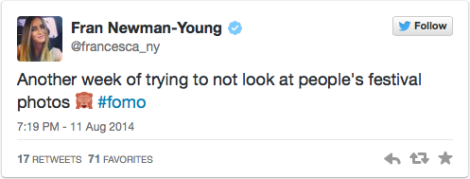Until now, we’ve taken a look at the role of social media and social media analytics purely within an organisational context. Among others, we’ve examined the use and impact of social media technology in enabling organisations to achieve operational agility and enhance brand reputation. However, as social media is predominantly used by society , we must not limit ourselves to an organisational perspective when examining the role and impact of social media. Therefore, in this post, we take a step out of the corporate world and examine how social media can both positively, negatively and unintentionally influence individuals and society.
The Good: social media can facilitate social and political activism
Kicking off with the positive, social media has positively influenced the social and political activism efforts of social movements. Serving as a low-cost information dissemination and networking platform, social media enables social movements to raise awareness of their campaign to a larger network of individuals, communities and organisations to amplify the size, speed and reach of their movement. Among others, perhaps the most well-known social movement which was positively influenced by the use of social media is the 2011 Arab Spring movement, a collection of grassroot movements within a number of Arab countries campaigning for democracy. The use of social media platforms, especially Facebook, enabled grassroot participants to broadcast planned demonstration events and even connect with other protest groups to mass rally participants. According to sociologist Zeynep Tufekci, the information propagation capabilities of social media positively shaped the magnitude of collective action, as individuals identified with other individuals based on shared beliefs and feelings in regards to the movement. This ultimately resulted in the takedown of dictators and authoritarian regimes in a number of Arab league countries including Egypt, Tunisia and Libya.

Figure 1 – image of the Arab Spring movement rally (image sourced from Ref. 6)
The Bad: social media can negatively impact an individual’s mental health
Despite social media’s positive influence on social movements, from an individual perspective, social media has been known to negatively impact an individual’s mental health. A recent study conducted by two German universities found that Facebook served as a platform for social comparison. Results from the study showed that ⅓ individuals felt envy, misery and loneliness and general dissatisfaction with their own lives after visiting Facebook. The source of envy was found to have come from the sharing of holiday photos and posts by others and the level of social interaction received by others, such as the number of birthday messages or “likes” received on other’s walls. Social media’s negative influence on individual mental health is further highlighted by new claims that social comparison and the ubiquitous nature of social media leads to the emerging phenomenon of ‘Fear of Missing Out’ (FOMO). While this is particularly prevalent among the 18-33 age group, the development of these feelings can lead to anxiety and depression. This notion is only exacerbated by a recent study at the University of Michigan, which found that individuals predominantly tend to post content that dramatically improves the public’s perception of the individual, such as positive life achievements and interaction events.

Figure 2 – Example of a Twitter post demonstrating the FOMO concept (image sourced from Ref. 4)
The Unintended: social media can influence shopping decisions
Steering away from the positive and negative influences, there are also various unintended influences of the use of social media on individuals. One of these is that social media can influence an individual’s shopping tendencies. According to a study by the digital marketing agency, ODM Group, 74% of consumers rely on social networks to guide purchase decisions. The capabilities of social media, including the personal networks, ubiquitous nature, sharing and following capabilities enables individuals to:
- Keep up with trends
- Learn more about the products and services of organisations
- Provide feedback and join the organisation’s customer community base
- Take advantage of promotions
This has both negative and positive outcomes, as it may result in the purchasing of products that are more suited to your needs, or it may result in the individual spending more on unnecessary products in order to stay ‘with it’ in society.
In this post, we’ve learnt that social media influences individuals and society in many different ways. So the next time you see something on social media, take it with a grain of salt and take a minute to think about how you’ve been potentially affected by it.
Know any more influences of social media that we haven’t discussed or have a story to share about how social media has affected you? Let us know by commenting below!
References:
Ahmed, M., 2015, ‘Is Social Media the Biggest Influencer of Buying Decisions?’, Social Media Today, accessed 3 May 2016, <http://www.socialmediatoday.com/marketing/masroor/2015-05-28/social-media-biggest-influencer-buying-decisions>
Healy, M., 2016, ‘Green with Envy: How Social Media can Increase Jealousy’, The National, accessed 3 May 2016, <http://www.thenational.ae/arts-life/well-being/green-with-envy-how-social-media-can-increase-jealousy>
Ingram, M., 2015, ‘How social media affects protest movements: It’s complicated’, Gigaom, accessed 1 May 2016, <https://gigaom.com/2015/01/28/how-social-media-affects-protest-movements-its-complicated/>
Lim, M. and Schwili, N., 2014, ‘FOMO, MOMO and JOMO or How Social Media Impacts Users’, Malinauniblog, weblog, accessed 3 May 2016, <https://malinauniblog.wordpress.com/2014/09/21/fomo-momo-and-jomo-or-how-social-media-impacts-on-the-users/>
Meunier, Z., 2016, ‘What Social Media is Really Doing to Our Brains’, The Juice Daily, accessed 3 May 2016, <http://www.juicedaily.com.au/spirit/what-social-media-is-really-doing-to-our-brains/>
Nato Review Magazine, 2014, ‘Pictures of the Revolution’, Nato Review Magazine, accessed 3 May 2016, <http://www.nato.int/docu/review/2012/Arab-Spring/AR-PHOTOS/EN/index.htm>
Petri, D., 2015, ‘The Outcomes of the Arab Spring’, Plataforma C, weblog, accessed 3 May 2016, <http://plataformac.org/the-outcomes-of-the-arab-spring/>
Great article! I think an additional example to “The Good” in terms of political activism and awareness is Bernie Sanders exceeding expectations and becoming a viable candidate for the US election. I think his campaign was greatly enhanced by social media in a time where major news sources predominantly focused on Trump.
LikeLike
Thanks for sharing your thoughts with us, Annika! Yes, we definitely agree that social media has helped to boost the global awareness of Bernie Sanders and even helped him gain that political momentum (and Donald Trump as well, to an extent). Also, how good is Sanders’ use of the #feelthebern hashtag within his campaign? We think that this could be one of his key social media success factors as we’ve seen how viral this hashtag has become!
LikeLike
Pingback: Social Media Analytics in Society – SM Gasbag
This article was great food for thought. We have become so reliant on social media to keep in touch with people, for example, everyone makes Facebook events so if you want to stop using Facebook it becomes an inconvenience to yourself and your friends.
Also, I think an unintended outcome of social media influence is how we have moved from a television-watching society to an internet based society. It sees the growth of Netflix original films and Youtube celebrities.
LikeLike